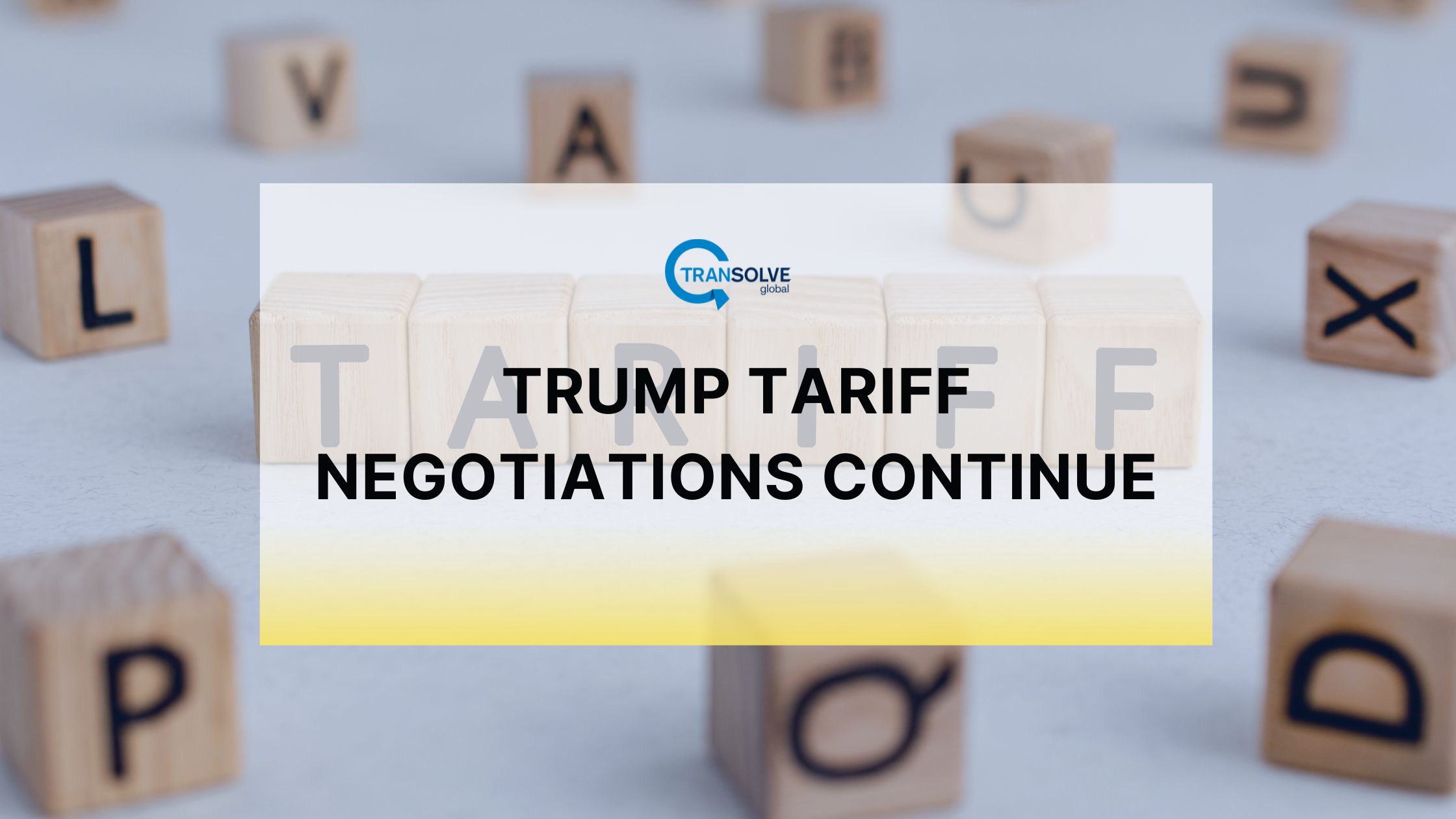
03 Jul Trump Tariff Negotiations Continue
As mentioned in our previous newsletters, Trump has announced a series of tariffs on a multitude of nations in his quest to boost American manufacturing and industry. With the imminent deadline for tariff negotiations upon us on the 9th of July, outlined below is an overview of the current state of tariffs:
China
With negotiations concluded in early June, whilst a baseline tariff of 10% has been applied to all Chinese goods, a range of tariffs of up to 30% have been applied on a wide range of goods. Conversely, China will apply a 10% tariff and access to rare earth resources is currently being finalised.
European Union (EU)
Trump initially proposed a 20% tariff on most EU goods, but this has been halved to 10% until the 8th of July to allow time for trade talks which to date, have seen Trump imply potential tariffs of up to 50% if no deal is reached by the deadline.
Other
Nations that are actively pursuing trade agreements, such as Canada and Japan, are likely to receive deadline extensions. Nations that are deemed uncooperative, such as India, may face tariffs of up to 50%.
Steel and aluminium
Trump introduced a 25% import tax on all steel and aluminium entering the USA, including products made from these metals. However, on 4th of June, this rate was doubled to 50% (with the exclusion of the UK due to ongoing negotiations until the 8th of July). Similar intent has been announced with regards to pharmaceuticals, semiconductors and other goods.
Automotives
Trump announced a 25% levy on all foreign-made cars, effective as of April. This was extended to include imported engines and other car parts as of May, however these rules have been modified to reduce the negative impact on US automotive companies.
Canada and Mexico
With both nations initially hit with a 25% tariff, there have been a series of delays and exemptions alongside retaliatory measures announced by Canada and Mexico.
UK
The UK car manufacturing sector will be subject to a reduced tariff of 10% (down from 27.5%), whilst their aerospace sector has a 0% tariff (down from 10%). However, at this point in time, the issue of steel and aluminium tariffs are yet to be resolved.
All these tariffs negotiations have created a high degree of ongoing economic uncertainty across the globe as negotiations continue between Trump and his international counterparts.
This has resulted in volatility across global markets, with The International Monetary Fund (IMF) downgrading its prediction for global economic growth for the remainder of 2025, highlighting that the USA will be the most heavily impacted by a potential recession.
FOLLOW US FOR THE LATEST NEWS!


Sorry, the comment form is closed at this time.